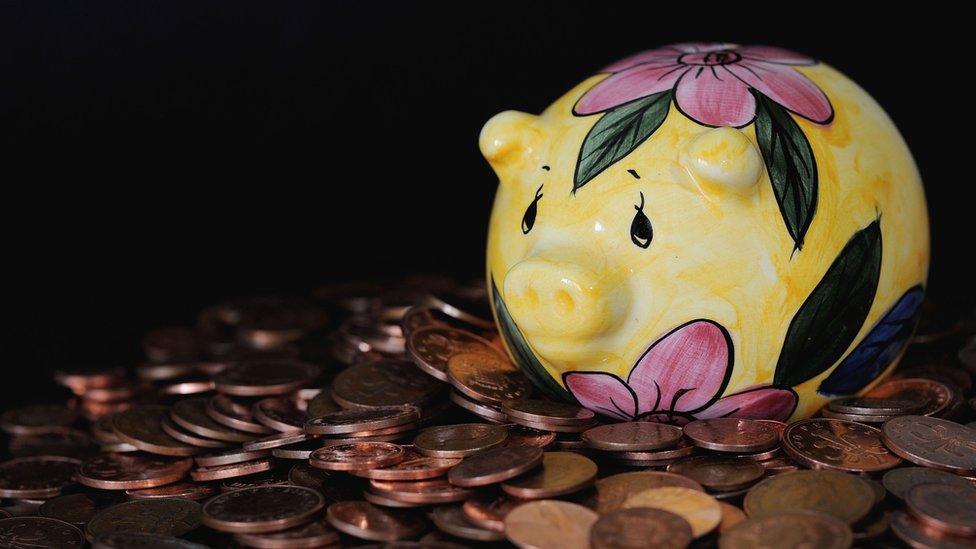The sting in the borrowing figures
- Published
- comments

The state of the public finances has provided a window on the performance of the economy, and some amber lights are flashing.
First, the good news. Annual government borrowing is at its lowest level since 2008.
At £52bn this year, the deficit (the difference between the amount a government receives in taxes and spends on services) is now at 2.6%, down from 10% in 2009.
Since the Brexit referendum, the economy has performed far better than forecast and that has increased government revenues.
Corporation tax receipts rose by 21% over the past year, to a record £55.6bn.
Income tax receipts (Pay-As-You-Earn and self-assessment) rose by 4.7% to £184bn.
The CBI's latest Industrial Trends Survey revealed that export orders were growing at their fastest rate for six years, helped by the fall in the value of sterling.
For a government that has pledged to "balance the books", lower deficit levels are seen as a good thing.
There are, of course, those who argue that "balancing the books" is an unnecessary political fetish.
They say that governments should borrow judiciously as long as the economic return on that borrowing - for example by investing in improved infrastructure - is higher than the cost.
The slightly less comfortable news in the Office for National Statistics (ONS) figures published today is contained in the final month of the data - March.
PAYE income tax receipts and VAT receipts actually fell last month compared with a year earlier, signalling that economic activity is stuttering.
The latest retail sales figures add to a picture of fresh economic headwinds, revealing the fastest quarterly decline for seven years.
As Sam Tombs, chief economist at Pantheon Macroeconomics, says: "The public finances add to evidence that the economy has slowed significantly this year."
More concrete data on that will arrive on Friday with the publication of the first quarter economic growth figure for 2017.
Many economists are predicting that this three-month growth figure will slow to 0.4% - from 0.7% for the last three months of 2016.
Rising inflation is eating into incomes.
Better borrowing figures today, yes, on the back of better economic news.
But, the headlines on growth and borrowing could turn gloomier ahead.